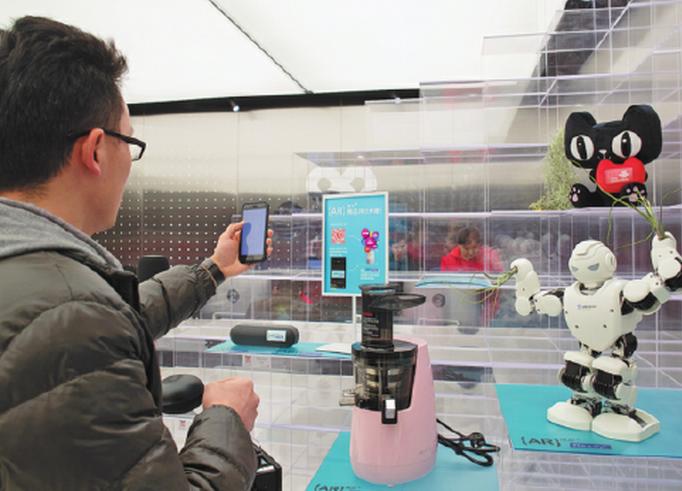Partnership store with Alibaba signals offline foray
By He Wei in Shanghai | China Daily | Updated: 2018-03-01 10:08

China Unicom has teamed up with Alibaba Group to set up a brick-and-mortar electronics store in Shanghai to sell interactive, technology-powered products.
The shop marks the telecom carrier's first business partnership with Alibaba, which has been involved in the telecom carrier's mixed-ownership reform since August 2017.
Located off Jiangsu Road, the Smart Living Experience Store is a 177-square-meter space that offers an array of electronic products like smart speakers, drones and air purifiers. Such products are also available on Tmall and Taobao, Alibaba's online marketplaces.
Wang Jiabin, technology director of Alibaba New Retail, said the store underlines the company's efforts to seamlessly integrate a real-time, in-store experience with online shopping.
The types of merchandise sold at the store are determined by big data analysis that tracks shopping preferences among those living within a 5-kilometer radius of the store, said Liu Xiaopeng, an Alibaba technician.
"To cater to prospective consumers, we've combined location information generated from the mapping service Amap, search histories from the browser UCWeb, and sales figures from Tmall and Taobao, to get a precise picture of the customer base," he said.
By turning on the Taobao app's augmented-reality function, customers can scan the QR codes located near each product to find out more about its features. Items can be purchased from the two Alibaba e-commerce platforms, or customers at the store can also choose to take the product home immediately or have it delivered to their homes.
The pilot program is expected to "greatly increase" footfalls at China Unicom's physical stores as tech-savvy younger consumers are more accustomed to handling telecom-related matters online, said Huang Zhengshi, deputy general manager of the west branch of China Unicom Shanghai.
"The majority of our existing visitors are above the age of 40. We believe this enhanced digital experience would deepen the engagement with customers and attract not only those aged between 20 and 30, but also more people who have not subscribed to our telecom services," he said.
In January, China Unicom partnered with JD, the country's second-largest e-commerce player and one of Unicom's newest shareholders, to build the first of such concept stores in Guangzhou, capital of Guangdong province.
According to China Unicom, this store features JD's facial recognition and motion recognition technologies, Wi-Fi detectors and smart billboards.
China has launched a series of reforms to rejuvenate its large SOEs, including changing their shareholding structure, spinning off non-core assets and calling for more innovation.
"There will be more consolidation of SOEs through mergers and acquisitions, disposal of non-core assets, mixed ownership reform and increased employee incentives," said Wang Tao, an economist at UBS, a Swiss global bank.
























